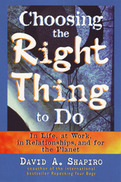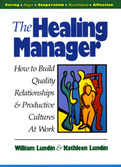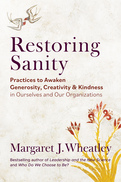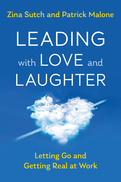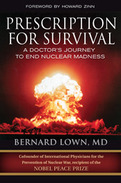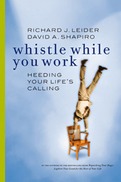Choosing the Right Thing to Do responds to the growing need that people of all ages have for moral guidance-without moralizing. It contains a rich palette of principles and strategies, stories and examples, ideas and insights that offer real-world help for intelligently addressing the often quite troubling choices we face every day in our personal relationships, jobs, and lifestyles.
- Presents a process by which readers can make moral choices that more accurately reflect their deepest values and commitments
- Offers more than 20 questions to ask, principles to explore, and tips to follow to choose the right thing to do in any situation
- By the co-author of Repacking Your Bags: Lighten Your Load for the Rest of Your Life, which has sold more than 200,000 copies worldwide
1993
This is the first book to squarely face the tough emotional and relationship issues in the workplace-anger, fear, distrust, conflict, resentment-and to provide practical and proven methods for creating more productive work environments. Based on fifteen years' experience using these methods inside workplaces, Bill and Kathy Lundin show how to:
o Replace anger and suspicion at work with caring, trust, and cooperation;
o Unlock the goodwill, learning, and creativity of everyone in an enterprise;
o Empower all employees to facilitate productive relationships at work.
The "Healing Manager" that the Lundins describe is any employee-whether CEO, first-line supervisor, or hourly worker-who helps others grow emotionally and intellectually, and who cultivates caring relationships on the job. The Lundins show that such well-being is the real secret to productivity, quality, and service.
The Lundins draw on counseling techniques, improvisational theater, and common wisdom to offer practical tools to help all managers and employees change their workplace behaviors, attitudes, and relationships.
This is the first book to squarely face the tough emotional and relationship issues in the workplace-anger, fear, distrust, conflict, resentment-and to provide practical and proven methods for creating more productive work environments. Based on fifteen years' experience using these methods inside workplaces, Bill and Kathy Lundin show how to:
o Replace anger and suspicion at work with caring, trust, and cooperation;
o Unlock the goodwill, learning, and creativity of everyone in an enterprise;
o Empower all employees to facilitate productive relationships at work.
The "Healing Manager" that the Lundins describe is any employee-whether CEO, first-line supervisor, or hourly worker-who helps others grow emotionally and intellectually, and who cultivates caring relationships on the job. The Lundins show that such well-being is the real secret to productivity, quality, and service.
The Lundins draw on counseling techniques, improvisational theater, and common wisdom to offer practical tools to help all managers and employees change their workplace behaviors, attitudes, and relationships.
2024
From 50 years working with leaders globally, I state with full confidence that leadership has never been more difficult. And it's not our fault. We've been good and caring leaders, we've led people in empowering, engaging ways to create meaningful, productive work. But now we face external conditions far beyond our control to change, dynamics intensifying at shocking speed.
The perfect storm is here, created by the coalescence of climate and human-created catastrophes. As leaders dedicated to serving the causes and people we treasure, confronted by this unrelenting tsunami, what are we to do? I state my answer to this also with full confidence:
We need to restore sanity by awakening the human spirit. We can achieve this only if we undertake the most challenging and meaningful work of our leader lives: Creating Islands of Sanity.
An Island of Sanity is a gift of possibility and refuge created by people's commitment to form healthy community to do meaningful work. It requires sane leaders with unshakable faith in people's innate generosity, creativity, and kindness. It sets itself apart as an island to protect itself from the life-destroying dynamics, policies, and behaviors that oppress and deny the human spirit. No matter what is happening around us, we can discover practices that enliven our human spirits and produce meaningful contributions for this time.
Science tells us that humans are deeply wired for empathy and compassion and that our emotional selves help us make better decisions and motivate others. However, the tactics we use to train leaders bear little reflection of these advancements; we're still creating competent but emotionally distant leaders who “manage human assets” and lead by setting goals, deadlines, and deliverables.
Zina Sutch and Patrick Malone hope to flip a light switch and illuminate, above all else, that leadership begins with heart and soul. Too many training programs reduce leadership to an equation, matrix, or acronym. But leadership is a relationship. It's one human helping another. The most successful leaders show they genuinely care about their employees and are, well, fun. It's just like any relationship.
In seven succinct chapters, the authors show that people lead best when they tap into their genetically driven human nature to love and nurture, connect and trust. Leading with love and laughter offers powerful dividends: tighter teams, stronger performance, improved morale, greater trust, more creativity, and even better health. While Sutch and Malone cite the science and offer examples, tips, and practices, their larger purpose is to reintroduce the warmth of human interaction and emotion as the foundation of what leadership is all about.
· A dramatic memoir by a Nobel Prize winner and medical pioneer
· Shows that the nuclear threat, which is still very much with us, can be successfully opposed by citizen action
· Analyzes what really drove the Cold War and what continues to drive nuclear proliferation today
“How close we came to extinction, and it is forgotten now.” So begins Nobel Prize-winner Bernard Lown’s story of his fight against the nuclear symptom of what he calls “the disease of militarism.” It is still active and highly contagious, as witnessed by events in Iran, North Korea, Pakistan, and all too many other places. And it can only be stopped, as this extraordinary memoir vividly demonstrates, by concerned citizens working together.
In 1981, brimming with anxiety about the escalating nuclear confrontation with the Russians, Lown launched a USA-USSR antinuclear movement with Soviet cardiologist Evgeni Chazov: The International Physicians for the Prevention of Nuclear War (IPPNW). Over the next four years Lown and Chazov recruited more than 150,000 doctors worldwide to join their movement, held international conferences that included U. S. and Russian military leaders, met with numerous world political leaders, and appeared on television programs broadcast throughout the USSR and the U. S. In 1985, despite active opposition from the U. S. government and NATO, Lown and Chazov accepted the Nobel Peace Prize on behalf of IPPNW.
This dramatic story is told with a vibrancy of language that illuminates dramatic scenes such as Lown convincing King Hussein of Jordan to join the anti-nuclear struggle during a medical exam, the heart attack of a Russian journalist at an IPPNW press conference, and Lown’s face-to-face conversations with Gorbachev. Although this book is concerned with a potential clash of superpowers, Lown writes, “At the heart of these cascading events is a human narrative.”
“Historical amnesia is a prelude for repeated victimization,” Lown says. Prescription for Survival probes the past to help us understand what drove, and continues to drive, nuclear proliferation, and offers a blueprint showing how we can join together across national boundaries to end it.
discovered. Whistle While You Work makes the uncovering process inspiring and fun. Featuring a unique “Calling Card” exercise—a powerful way to put the whistle in your work—it is a liberating and practical guide that will help you find work that is truly satisfying, deeply fulfilling, and consistent with your deepest values.
Richard Leider and David Shapiro combine straightforward advice for how you can discover your calling with dozens of inspiring stories featuring individuals who have found—or are in the process of finding—theirs. Most importantly, they provide an inspiring, effective, and entertaining guide to discovering the work you were born to do. It will equip you to see a clear picture of what your right work is and what to do with your limited time here on Earth.
• Winner of the 2001 Career Book of the Year award from ForeWord Magazine
• By the authors of the international bestseller, Repacking Your Bags (more than 220,000 copies sold)
• Through practical advice and a breakthrough exercise-Calling Cards-helps readers identify their callings and choose a way of life and work consistent with their gifts, passions, and values
• Takes a challenging concept-calling-and makes it accessible and practical to our everyday lives
• Numerous real-life stories and examples offer hope that meaningful work is possible and within our grasp


